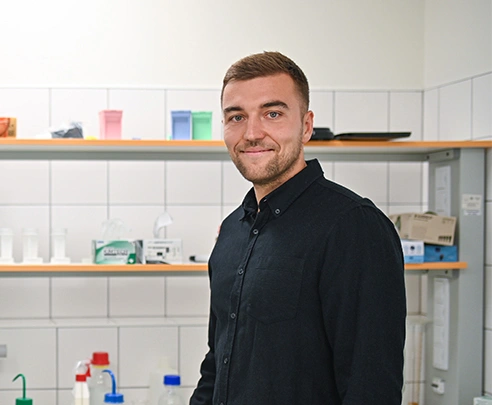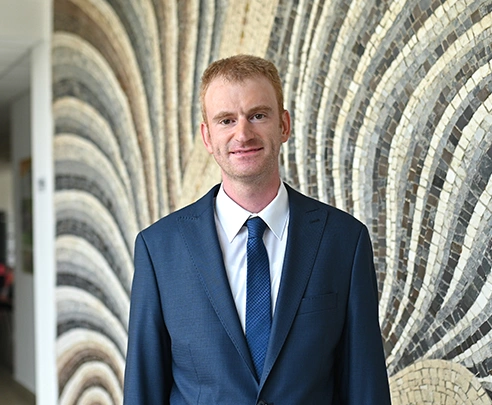His favourite subject at school was mathematics and since childhood he’s been fascinated by mobile phones and the constant progress in technology. He wanted to understand them more and so he decided to study physics. Today, Mgr. František Herman, PhD., works at the Department of Experimental Physics at the Faculty of Mathematics, Physics and Informatics at Comenius University Bratislava, where he and his students research theoretical condensed matter physics in addition to teaching. At the moment, they are most interested in superconductivity.
Superconductors are materials that can conduct electric current at very low temperatures without losing energy during transmission. They can also generate strong magnetic fields, a feature that is proving crucial for particle accelerators and hospital MRI machines, for example. Superconductors in accelerators keep particles on the right path while helping them accelerate to extremely high speeds. Thanks to superconductors, it is also possible to store energy efficiently, as they can hold an electric current indefinitely in a closed circuit. Therefore they could also provide benefits by being used in power grids or to stabilise the transmission of electricity. „However, superconductors are not as common today as semiconductors, as we need very low temperatures to use them. They usually require a low-temperature refrigerator to retain their properties. This is one of the challenges of their broader use. This is why the community is investigating the possibility of superconductivity at higher temperatures. These are still open questions, but there is progress,“ says František Herman, who has been researching superconductors for eight years, in part thanks to a SASPRO grant. He adds that grants are also crucial for the research of theoretical physicists, who can use them to attend conferences or present their results. This can serve as good promotion for their working groups, their universities, and the scientific environment in their countries.
He is proud that the faculty team he is a part of managed to construct a simple mathematical model. The model considers not only the interaction of electrons in superconductors but also how their superconductive properties can be affected by disarray, substitutional atoms, and other material impurities. „Our theory can describe samples in a wide range of disarray and for different temperatures. We are able to describe materials at both low and higher temperatures, close to the critical threshold where superconductivity no longer exists,“ he describes.
František Herman completed his postdoctoral studies at ETH Zurich. However, since he wanted to work on his own projects and lecture at the same time, he returned to Slovakia. He likes his homeland and it suits him. He also enjoys contributing to its improvement in some way. At the same time, he thinks it's good to have a foreign experience, a richer environment where everything runs more smoothly and many problems can be solved thanks to sufficient financing. He thinks there is no shortage of smart and talented scientists in Slovakia who are determined, despite many obstacles. „Science benefits from operating in established democracies, where scientists can thrive and breathe easier. Constant changes in social and political situations also have an impact on science and where funding goes, how the country treats universities, what the job market is,“ he says. Nevertheless, he was pleased that the funding for science from the EU’s recovery plan brought many opportunities for young scientists and he would like for this to not be a one-off event. He is also pleasantly surprised by his students, whom he likes to work with.
He divides his time evenly between teaching and research, but would like to do more research. He believes this is also more efficient for students, who are able to get more information on current topics. He points out that many teachers stop developing over time, which he says is not the best way to go, especially at universities.
„Science is in almost everything that surrounds us. I believe that everyone who turns on a microwave, makes tea or calls their children can see its importance. I want to believe in a world in which people don't need to be constantly reminded of the importance of science,“ he thinks. He himself would find a world without science boring. He enjoys the challenge of the uncertainty of exploration and research and is delighted when he gets a good result or publishes a good paper. It is, he says, a similar feeling to when a painter paints a picture. When he is not doing science, he enjoys playing sports and cooking good food. This clears his head, relaxes him and makes him ready to do research or learning again.

